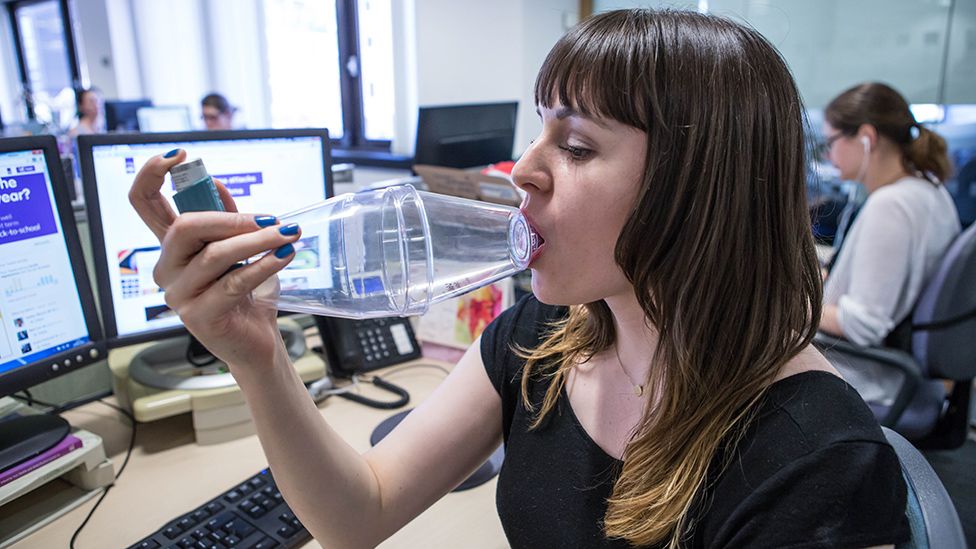Why switching asthma inhaler could be better for you and the planet

The current aerosol asthma inhalers we use are cheap but, because of the gases they contain, are one of the NHS's biggest contributions to climate change. Other countries think alternatives are superior - and some patients in the UK who have switched say they are controlling their asthma better. So, could millions of people be prescribed different inhalers? "It's like there's a vacuum cleaner in your lungs trying to pull your air out." That's what an asthma attack feels like for nine-year-old Sebastian.
Asthma runs in his family. His mum Caroline Sousek says the disease has "hugely dominated" her life since the age of three. It would start from the moment she woke up wheezing: "I would not go anywhere without an inhaler in my hand, it really affected what I was able to do and when I was able to do it."
Both mum and son say they have transformed control of their asthma by changing their inhalers to ones that are also much better for the planet. "I just can't believe the impact it's had, it has literally been life-changing," says Caroline - speaking to me for BBC Radio 4's Inside Health.
She and Sebastian still have "preventer" medication to reduce the risk of an attack and "reliever" medication in case one happens. But the crucial change for them, is how those drugs get into their lungs.
Before, they had been using aerosol spray inhalers - also known as puffers or pressurised metered-dose inhalers. "The aerosol sprays contain a powerful greenhouse gas which is used to propel the medicine out of the inhaler and into the airways," says Dr Alex Wilkinson, an NHS consultant in Stevenage who specialises in lung diseases.
The different gases - called hydrofluorocarbons - used in these inhalers are between 1,000 and 3,000 times more potent at warming the planet than carbon dioxide.
You might not think that adds up to much, after all inhalers are small and just slip inside your coat pocket. But more than five million people are being treated for asthma in the UK and the overwhelming majority are prescribed aerosol spray inhalers. Overall, around 4% of the NHS's entire carbon footprint comes from asthma drugs. The only other medicines to come close are the anaesthetic gases used in surgery.
Now, Caroline and Sebastian have "greener" inhalers that contain no propellant. These are called dry powder inhalers and you have to do the work of sucking the medicine out.
The case for using dry powder inhalers is clear if you only care about climate change, but are they a better choice for patients? In a GP surgery in Sheffield you'll find one of the country's first "net-zero" GPs. Dr Aarti Bansal's aim is to simultaneously improve care for patients and cut carbon emissions.
"As long as you can get the medication into the right place in your lungs, then one inhaler is not necessarily better than the other and the vast majority of patients can use a dry powdered inhaler," she tells Inside Health.
She says the aerosol spray inhalers are "actually quite tricky" to use and people often get the technique wrong. So instead of the medicine going into the lungs "it's going to hit the back of your throat".
Aerosol spray inhalers require a slow steady breath as the inhaler is used. A dry powder inhaler needs a quick hard suck, which is how many people use inhalers instinctively.
